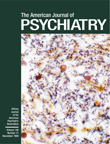Adjunctive Lamotrigine Treatment for Major Depression
Ms. A was a 45-year-old woman who had been diagnosed with recurrent major depressive disorder; her therapeutic trials of bupropion, phenelzine, venlafaxine, imipramine, and nortriptyline had failed, and she had only been partially responsive to ECT. To her regimen of tranylcypromine, 70 mg/day, lithium carbonate, 1200 mg/day, and clonazepam (0.5 mg/day b.i.d. as needed, used sparingly for anxiety) treatment was added lamotrigine, 25 mg/day, and titrated to 75 mg/day within 3 weeks. Within 8 weeks, Ms. A reported a dramatic improvement in her mood and shortly thereafter returned to work. She continued to do well on this treatment regimen when assessed 6 months later.Ms. B was a 43-year-old woman with recurrent major depressive disorder whose therapeutic trials of venlafaxine, fluoxetine, and paroxetine had failed. In addition, she could not tolerate a trial of nefazodone treatment. To her regimen of fluoxetine, 50 mg/day, and bupropion, 150 mg/day (sustained-release preparation), was added lamotrigine, 25 mg/day. Within 4 weeks, she, too, reported a dramatic improvement. “I can’t remember the last time I felt this good,” she commented. She continued to do well when assessed 2 months later.
References
Information & Authors
Information
Published In
History
Authors
Metrics & Citations
Metrics
Citations
Export Citations
If you have the appropriate software installed, you can download article citation data to the citation manager of your choice. Simply select your manager software from the list below and click Download.
For more information or tips please see 'Downloading to a citation manager' in the Help menu.
View Options
View options
PDF/EPUB
View PDF/EPUBGet Access
Login options
Already a subscriber? Access your subscription through your login credentials or your institution for full access to this article.
Personal login Institutional Login Open Athens loginNot a subscriber?
PsychiatryOnline subscription options offer access to the DSM-5-TR® library, books, journals, CME, and patient resources. This all-in-one virtual library provides psychiatrists and mental health professionals with key resources for diagnosis, treatment, research, and professional development.
Need more help? PsychiatryOnline Customer Service may be reached by emailing [email protected] or by calling 800-368-5777 (in the U.S.) or 703-907-7322 (outside the U.S.).

